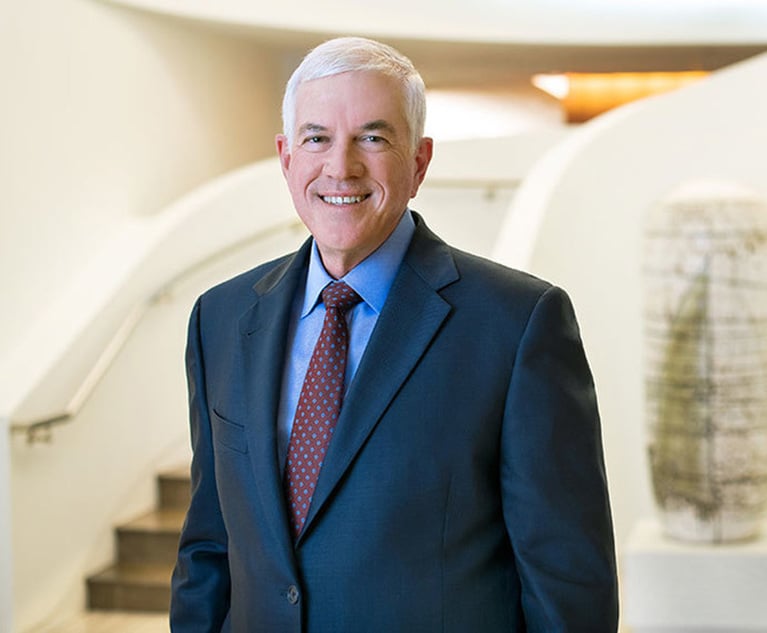Mark Hinderks

December 31, 2024 | The Legal Intelligencer
Avoiding Conflict When Relating Advice to an Adverse Party to Facilitate a Client MatterThe unrepresented protagonist who has asked you for a legal document or information about the law is an opposing party. This means that you cannot create an attorney-client relationship with either of them, intentionally or inadvertently, without giving rise to a conflict of interest under Model Rule 1.7.
By Mark Hinderks
4 minute read

November 25, 2024 | The Legal Intelligencer
Avoiding Inadvertent Conflict Issues With Constituents When Representing Organizational ClientsYou are in a bind. You now have a concurrent conflict under Model Rule 1.7, given that one of your clients has now confessed to you privately facts that are material to the matter (and most likely material to your company client's continued employment of the vice president) but has told you not to reveal those facts to your company client. The "bind" arises because you have a competing duty to your company client to disclose those facts under Rule 1.4.
By Mark Hinderks
5 minute read

October 18, 2024 | The Legal Intelligencer
The Ethics of Addressing Opposing Counsel's Factual ErrorsThe primary focus of a lawyer's duties under the Model Rules is always to the lawyer's client (diligence, competence, confidentiality), with only limited and basic duties that apply to third parties or to opposing parties or counsel.
By Mark Hinderks
5 minute read

September 30, 2024 | The Legal Intelligencer
Ethical Considerations in Representing an Organizational Client and Its ConstituentsRemind all constituents that you are counsel for the corporation, clarify any additional persons you may be representing or advising after considering the potential for conflicts of interest.
By Mark Hinderks
4 minute read

August 28, 2024 | The Legal Intelligencer
When Do Family Relationships Create Conflicts for Lawyers on Opposing Sides?Would the lawyer be as diligent and assertive in advancing their client's interests against an opponent represented by a family member as against someone with no relationship? A good way to think about whether a relationship presents a "material limitation" is to consider whether you would file a motion for sanctions against the opposing lawyer, if otherwise appropriate and warranted.
By Mark Hinderks
5 minute read

July 26, 2024 | The Legal Intelligencer
What Should a Transactional Lawyer Do Upon Discovery of Client Fraud in a Completed Deal?The lawyer should consult with the client about the client's best interests in the matter, which likely involves an effort to disclose and rectify or mitigate the misrepresentation before it turns into fraud claims and litigation.
By Mark Hinderks
6 minute read

June 25, 2024 | The Legal Intelligencer
Ethics of Preparing an Estate Plan That Includes a Gift to a Relative of the LawyerThis question pertains to Model Rule 1.8(c), which prohibits a lawyer from preparing a document for a client that gives "the lawyer or a person related to the lawyer any substantial gift" unless the lawyer or recipient is related to the client.
By Mark Hinderks
3 minute read

May 30, 2024 | The Legal Intelligencer
When Do Advance Waivers Embedded in an Engagement Letter Permit Future Adversity to the Client?An advance waiver contained in an engagement letter links the law firm's acceptance of the matter and corresponding ethical duties to the client with the client's willingness to accept the firm's ability to work for other clients in unrelated areas, even if adverse.
By Mark Hinderks
5 minute read

April 29, 2024 | The Legal Intelligencer
When Does Unsolicited Receipt of Confidential Information From a Potential Client Create Duties?Whether communications (oral or electronic) received by the lawyer constitute such a "consultation" to trigger "prospective client" status depends on the circumstances, including whether the lawyer or law firm has invited the submission of information about the representation through advertising, website reference, etc., without qualifying cautionary statements or warnings about the nature of the communications.
By Mark Hinderks
4 minute read

March 26, 2024 | The Legal Intelligencer
Is It a Conflict of Interest to Be Adverse to a Former Firm Client Who Has Left With a Departing Lawyer?When a lawyer has terminated their association with a firm, the firm is not thereafter prohibited from being adverse to a client represented by that formerly associated lawyer, and not currently represented by the firm.
By Mark Hinderks
4 minute read



